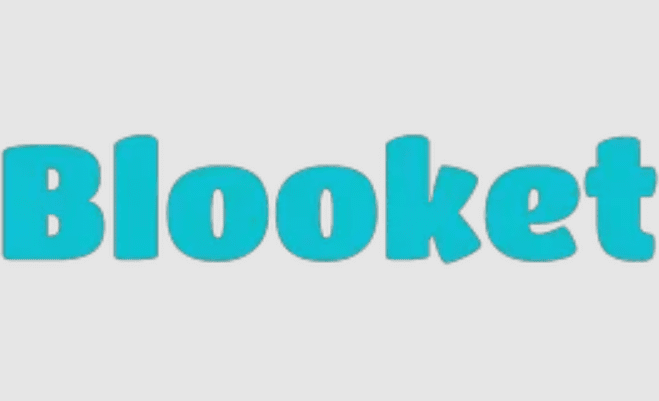Education
A Quick Guide to PMP Requirements

Project Management Professional (PMP) certification is a very much-needed credential that is required in the field of project management. The PMP credential is globally recognized, and it demonstrates that you have the necessary experience and education to lead and direct projects. The certification process is rigorous, and it requires a lot of preparation, but the reward for passing the exam is well worth it. Thus, below is a quick guide to PMP requirements that will help you understand what you need to do to become a PMP.
- Education: To become a PMP, you must have a four-year degree or equivalent from an accredited institution, 36 months of leading and directing projects, and CAPM certification or around 35 hours of project management education. If you don’t have a bachelor’s degree, you can still become a PMP if you have at least completed 60 months of leading and directing projects and CAPM certification or around 35 hours of project management education.
- PMP Exam Application: Before you can take the PMP exam, you must apply for it. The application process requires you to provide detailed information about your education and work experience, as well as your project management education. You will also need to provide references and pay a fee to apply.
- PMP Exam Scheduling: Once your application has been approved, you can schedule your PMP exam. PMI offers exams at testing centres around the world. You can schedule your exam there, and you will receive a confirmation email with your exam date and time.
- PMP Exam: Once you have met the education and experience requirements, you can take the PMP exam. A test with questions of 3 different domains makes up the PMP exam.
How to Prepare for PMP?
To prepare for the PMP exam, you should start by studying the PMBOK (Project Management Body of Knowledge) Guide, which is the standard for project management. You can also use study materials, such as flashcards, practice tests, and study guides, to help you prepare for the exam. Additionally, you may consider enrolling in a PMP exam prep course to receive structured training and guidance. You can also explore PMI blog for the latest resources.
What is validity of PMP Certification?
Once you have passed the PMP exam and received your certification, you must maintain your PMP status by earning professional development units (PDUs). PDUs can be earned through a variety of activities, including attending professional development events, participating in online training programs, and writing articles or books on project management.
Conclusion
PMP certification is a valuable credential that demonstrates your expertise in project management. To become a PMP, you must have the necessary education and experience, complete 35 hours of project management education, pass the PMP exam, and maintain your certification by earning PDUs. There has been an innovation in the market where a new Trello game is being used to teach others about PMP. By following these requirements and adhering to the PMI Code of Ethics and Professional Conduct, you can achieve PMP certification and take your career to the next level.
Education
Pi123: A Comprehensive Guide

What is Pi123?
What is Pi123? It may sound like a mysterious code or a secret mathematical formula, but in reality, Pi123 refers to the numerical value of pi – an irrational and transcendental number that represents the ratio of a circle’s circumference to its diameter. Most commonly approximated as 3.14, pi has fascinated mathematicians and scholars for centuries.
Calculating Pi: From Archimedes to Modern Methods
The quest to calculate the value of pi, a mathematical constant representing the ratio of a circle’s circumference to its diameter, has fascinated mathematicians for centuries. One of the earliest known attempts at approximating pi was made by the ancient Greek mathematician Archimedes in the 3rd century BC.
Archimedes used a method called “circumscribing and inscribing polygons” to estimate pi. By drawing regular polygons inside and outside a circle with increasing numbers of sides, he was able to come up with upper and lower bounds for the value of pi.
Over time, new methods were developed that improved upon Archimedes’ approximation. In the 17th century, French mathematician François Viète introduced an infinite series formula for calculating pi. This formula involved adding an infinite number of terms together to approach the precise value of pi.
In more recent times, computers have played a crucial role in refining our understanding of this irrational number. The advent of algorithms such as Bailey-Borwein-Plouffe (BBP) and Machin-like formulas has allowed us to compute billions or even trillions of digits beyond the decimal point.
Interesting Facts and Trivia about Pi
Pi, the mathematical constant that has captured the fascination of mathematicians and enthusiasts for centuries, holds a plethora of intriguing facts and trivia. Let’s delve into some lesser-known tidbits about this enigmatic number.
Did you know that March 14th is celebrated as Pi Day? The date corresponds to the first three digits of pi (3.14) in month/day format. It’s an opportunity for math lovers worldwide to indulge in activities like reciting pi, solving puzzles, or baking circular pies!
Pi is an irrational number, meaning it cannot be expressed as a simple fraction or finite decimal. Its decimal representation goes on forever without repeating! In fact, using supercomputers, researchers have calculated billions upon billions of decimal places of pi – but we still don’t know if it contains every possible sequence of numbers.
The symbol π used to represent pi was popularized by Welsh mathematician William Jones in 1706; he chose this Greek letter because it stood for “perimeter” or “circumference.” Prior to that, various symbols such as p and c were used.
Interestingly enough, the exact value of pi wasn’t known until recently. In 2019, computer scientist Emma Haruka Iwao broke records by calculating over 31 trillion digits of pi using Google Cloud technology! This feat demonstrated both computational power and our quest to uncover more digits beyond what we currently know.
Practical Applications of Pi in Everyday Life
Pi, the mathematical constant that represents the ratio of a circle’s circumference to its diameter, may seem like an abstract concept with no practical use in our daily lives. However, this fascinating number actually has numerous applications that we encounter regularly.
One area where Pi is crucially important is in geometry and trigonometry. These branches of mathematics heavily rely on Pi for calculations related to circles, angles, and curves. Architects and engineers utilize these principles when designing buildings or creating blueprints for various structures.
Another area where Pi finds application is in physics and engineering fields such as fluid dynamics and electromagnetism. The formulas used to calculate wave frequencies, resonant circuits, or even the behavior of fluids flowing through pipes often involve Pi.
The field of technology also benefits from Pi’s relevance. Computer graphics algorithms use it extensively when rendering curves or circular shapes on screens or displays. In fact, without accurate approximations of Pi, images could appear distorted or jagged.
Furthermore, many scientific research areas require precise measurements involving circles or spheres – be it astronomy calculating orbits using gravitational forces or biology studying cell division during mitosis.
Challenges and Controversies Surrounding the Value of Pi
Challenges Surrounding the Value of Pi
- Decimal Calculation Challenge:
- Accurately calculating the decimal representation of Pi is a major challenge.
- Pi is an irrational number with an infinite and non-repeating decimal expansion.
- Mathematicians have developed various approximation methods, but no definitive precise calculation method exists.
Controversies Surrounding the Value of Pi
- Legislative Controversy:
- In the early 20th century, Indiana attempted to establish legislation defining a specific value for Pi.
- This proposal faced criticism from mathematicians who argued that it contradicted established mathematical principles.
- Ultimately, the attempt failed, highlighting the difficulty of assigning a fixed value to an irrational number.
- Historical Significance Controversy:
- Controversies revolve around Pi’s significance in religious texts and ancient civilizations.
- Some argue that references to circles and their ratios in these texts indirectly allude to the value of Pi, implying advanced mathematical knowledge among ancient cultures.
- Alternative Numerical Systems Debate:
- Ongoing debates surround the use of alternative numeral systems, such as binary or hexadecimal, for representing numbers like Pi.
- These discussions question the limitations of our current base-10 numerical system.
- Precision Debates:
- With advances in technology and algorithms, researchers can now calculate more digits of Pi than ever before.
- Questions arise about the necessity of such extreme precision and whether it serves primarily theoretical purposes.
Conclusion
Pi123 is a fascinating and fundamental mathematical constant that has captivated mathematicians, scientists, and enthusiasts for centuries. From the ancient methods of Archimedes to the modern calculations using supercomputers, the pursuit of accurately determining pi has been an ongoing endeavor.
Throughout history, pi has played a vital role in many areas of mathematics and science. Its applications can be seen in various fields such as engineering, physics, computer science, and even art. The value of pi holds practical importance in everyday life—from calculating the circumference of circles to designing complex structures.
However, despite its ubiquity and significance, controversies surrounding the exact value of pi have emerged over time. These debates highlight not only the complexity involved in computing pi but also raise questions about foundational aspects of mathematics itself.
Education
A Guide to Join Blooket: Engage Students

Blooket innovative platform is revolutionizing the way we teach and learn, bringing gamification to the forefront of education. Join Blooket opens up a world of possibilities for educators, allowing them to transform mundane content into engaging games that will captivate students’ attention.
What is Blooket?
Blooket is an exciting online platform that combines the power of gaming with education. It allows teachers to create interactive games for their students, making learning a fun and engaging experience. With Blooket, you can transform any subject or topic into a game that will captivate your students’ attention.
One of the great things about Blooket is its versatility. Whether you’re teaching math, science, history, or language arts, there are endless possibilities for creating educational games. From multiple-choice quizzes to flashcard races and even collaborative challenges, Blooket offers a wide range of game options to suit different learning styles and preferences. Joining Blooket is easy and free! All you need to do is sign up for an account on the official website. Once you’ve created your account, you can start exploring the various features and tools available to enhance your lessons.
Why Join Blooket?
This innovative online platform offers a wide range of educational games that can bring excitement and motivation to any classroom. One of the main reasons why you should join Blooket is its ability to gamify the learning experience. By incorporating game elements into lessons, students become more actively involved in their education. They are motivated to participate, challenge themselves, and strive for success. With Blooket’s diverse game options, including quizzes, flashcards, and match activities, there is something for everyone.
Moreover, using Blooket allows educators to tailor their lessons to meet individual student needs. The platform provides real-time data on student performance, which helps teachers identify areas where additional support may be needed. This personalized approach fosters a deeper understanding of concepts and ensures that each student receives the attention they deserve.
The Benefits of Using Blooket in the Classroom
- Gamified Learning: Blooket introduces game elements like points, levels, and rewards into lessons, making education more engaging and enjoyable for students.
- Motivation and Participation: By gamifying learning, Blooket motivates students to actively participate and strive for improvement, fostering healthy competition among peers.
- Versatility: Blooket offers a variety of game options suitable for different subjects and topics, allowing customization to fit specific curriculum needs.
- Interactive Activities: From multiple-choice quizzes to flashcards and virtual scavenger hunts, Blooket provides a wide range of interactive activities adaptable to lesson objectives.
- Real-time Data Analytics: Blooket enables teachers to track student progress and assess understanding through detailed insights into individual and class-wide performance.
- Support and Intervention: This information empowers educators to identify areas where students may need additional support or intervention.
- Accessibility: Blooket is web-based and accessible from any device with an internet connection, promoting flexibility in both traditional and remote learning environments.
- Engagement and Collaboration: Blooket’s interactive games capture students’ attention, foster collaboration, and enhance critical thinking skills.
How to sign up and create a Blooket account
Signing up for Blooket is a simple and straightforward process that allows you to quickly create an account and start gamifying your lessons. To get started, visit the Blooket website and click on the “Sign Up” button. You’ll be prompted to enter your email address, create a username, and choose a password.
Once you’ve entered this information, click on the confirmation link sent to your email. This will verify your account and allow you access to all of Blooket’s features. After confirming your email, you can log in using your chosen username and password.
Upon logging in, you’ll be taken to the main dashboard where you can explore different game options, manage classes and students, and track student progress. Take some time to familiarize yourself with the platform’s layout before diving into creating games.
Creating a game on Blooket is as easy as clicking on the “Create Game” button on the right side of the dashboard. From there, you can choose from various game types such as Tower Defense or Team Mode.
In each game type, you have full control over customizing questions, answers options, timers settings etc., allowing for personalized learning experiences tailored to your students’ needs.
Tips for effectively implementing Blooket in lessons
1. Choose the right game mode: Blooket offers a variety of game modes, each with its own unique features and benefits. Consider the learning objectives of your lesson and select the game mode that aligns best with those goals. Whether it’s a review session or a quiz competition, Blooket has you covered!
2. Create engaging questions: To maximize student engagement, make sure to create compelling and thought-provoking questions. Incorporate different question types such as multiple choice, true/false, or open-ended to cater to various learning styles.
3. Mix it up: Don’t limit yourself to just one type of game on Blooket! Try out different activities like Tower Defense or Match Game to add variety and keep students excited about learning.
4. Utilize power-ups strategically: Power-ups can enhance gameplay by giving students advantages or hindering opponents’ progress. Encourage strategic thinking by teaching students how to strategically use their power-ups within the context of the lesson.
5. Monitor student progress: Take advantage of Blooket’s built-in class management tools that allow you to track student performance and identify areas where additional support may be needed.
6. Foster healthy competition: Use Blooket as an opportunity for friendly competition among students while emphasizing sportsmanship and collaboration rather than solely focusing on winning.
7. Promote reflection: After each game, provide time for students to reflect on what they have learned from playing Blooket. Encourage them to discuss strategies used during gameplay and connect these experiences back to key concepts taught in class.
Managing Classes and Students
Once you’ve joined Blooket and started using it in your classroom, it’s important to know how to effectively manage your classes and students. Blooket provides several features that can help streamline this process. You have the ability to create different classes within your Blooket account. This allows you to organize your students into specific groups or grade levels, making it easier to assign games and track their progress.
Within each class, you can add individual students or import a roster from a CSV file. This saves time by automatically creating student accounts and assigning them to the appropriate class. Once your classes are set up, you can easily monitor student performance through Blooket’s analytics dashboard. This provides valuable insights on how well each student is doing in different games or topics, allowing you to identify areas where they may need additional support.
Furthermore, Blooket allows for real-time monitoring during gameplay sessions. As a teacher, you can view each student’s screen while they’re playing a game, enabling you to keep an eye on their progress and provide immediate feedback if needed.
Conclusion
Blooket is a dynamic tool for educators, offering engaging gamification that enhances classroom learning. Its simplicity, wide range of game options, and effective class management empower teachers to captivate students. Whether it’s for review, reinforcement, or discussion, Blooket’s game modes adapt to various subjects and grade levels. Join Blooket is straightforward, furthermore, creativity can be applied to integrate games into lessons. To ensure success, provide clear instructions, while also balancing competition and collaboration, and track progress using Blooket’s reporting feature. Moreover, efficient class and student management is made possible through Blooket’s intuitive interface.
Education
Empowering Education: UNG D2L at University of North Georgia

Introduction
In the introduction, we set the stage for the article by highlighting the significance of technology in revolutionizing education. We can explain how traditional classrooms have evolved into dynamic digital learning environments, offering students and educators unprecedented opportunities for engagement and collaboration. This digital transformation has given rise to Learning Management Systems (LMS), such as D2L, which serve as the backbone of modern education. We can emphasize that the University of North Georgia (UNG) stands at the forefront of embracing this technological shift to elevate its academic offerings and provide an exceptional learning experience.
A Brief Overview of UNG
In this section, we provide a more comprehensive background of the University of North Georgia. Firstly, we detail the university’s history, including its founding through the consolidation of North Georgia College & State University and Gainesville State College in 2013.
Furthermore, to emphasize UNG’s multi-campus presence, we can mention its campuses in Dahlonega, Gainesville, Oconee, and Cumming, which collectively serve students from diverse backgrounds across the state of Georgia.
Moreover, to showcase UNG’s commitment to academic excellence, we can elaborate on notable achievements and recognitions received by the university in recent years. This may include highlighting academic rankings, research accomplishments, community engagement initiatives, and any prestigious awards or accreditations received by UNG.
Additionally, by providing this comprehensive overview of UNG’s background and achievements, we aim to underscore the university’s strong foundation and reputation for academic excellence, which sets the stage for understanding its forward-thinking approach to education and technological integration.
We can also highlight UNG’s academic diversity, offering a wide range of undergraduate and graduate programs across various disciplines, from arts and sciences to business, education, nursing, and more. This diversity underscores UNG’s dedication to providing a well-rounded education that meets the needs of its diverse student body.
Introduction to D2L
In this section, we provide an in-depth introduction to D2L as a leading Learning Management System. First, we delve into the history of LMS platforms, tracing their evolution from basic course management systems to sophisticated and interactive platforms like D2L.
Furthermore, to showcase D2L’s prominence in the education sector, we can mention its wide adoption by educational institutions worldwide, serving millions of students and educators. Additionally, we can discuss its reputation for user-friendly interfaces, robust features, and continuous updates to align with the evolving needs of the academic community.
Moreover, by highlighting these key attributes, we aim to underscore why D2L has become a preferred choice for educational institutions like the University of North Georgia (UNG) and how it has contributed to transforming traditional educational models into modern, technology-driven learning environments.
In explaining D2L’s role at UNG, we can elaborate on how the university selected the platform after careful evaluation and how it aligns with UNG’s mission to deliver a modern and technology-driven education. This section can also include any specific statistics or data that demonstrate the impact of D2L on UNG’s academic performance and student outcomes.
Key Features and Benefits of UNG D2L
In this section, we provide an in-depth exploration of the various features and benefits offered by D2L at UNG.
Course Management: We can explain how D2L streamlines course management for instructors, enabling them to create and organize course content with ease. Instructors can upload lecture notes, multimedia resources, and assignments, making them readily accessible to students.
Interactive Learning: We can provide concrete examples of how D2L fosters interactive learning experiences. This could include virtual discussion boards, video conferencing for live lectures, multimedia-rich content, and online collaboration tools for group projects.
Mobile Accessibility: We can emphasize the importance of mobile accessibility, especially for today’s on-the-go students. D2L’s mobile applications allow students to access course materials, submit assignments, and engage in discussions using their smartphones or tablets.
Assessment and Feedback: We can explore the various assessment tools offered by D2L, such as quizzes, exams, and assignment dropboxes. Additionally, we can highlight how D2L’s automated grading system provides prompt feedback to students, supporting their learning progress.
Gradebook and Progress Tracking: We can discuss how D2L’s gradebook feature allows instructors to monitor students’ progress throughout the course, enabling timely interventions and personalized support.
Supporting the UNG Community
This section delves into the comprehensive support and resources provided by UNG to ensure that faculty and staff make the most of D2L.
Professional Development: We can elaborate on the university’s commitment to faculty and staff development. UNG offers training resources, workshops, and webinars to empower instructors with the knowledge and skills to utilize D2L’s features effectively in their teaching.
Online Support Resources: We can mention any online support portals or help desks available to assist faculty in troubleshooting technical issues related to D2L. These resources ensure that faculty can receive timely support whenever they encounter challenges while using the platform.
UNG’s Commitment to Technological Advancement
In this section, we emphasize UNG’s broader approach to embracing technology in education.
Technological Initiatives: We can provide a comprehensive overview of the various technological initiatives undertaken by UNG. This may include integrating digital tools and resources into classrooms, implementing virtual labs, utilizing augmented or virtual reality for certain subjects, and leveraging data analytics for personalized learning experiences.
Furthermore, we can highlight how these technological initiatives have transformed the learning experience at UNG, creating dynamic and engaging educational environments that cater to the needs of modern students.
Collaboration with Industry Partners: We can also showcase UNG’s strong collaboration with industry leaders to enhance its technological infrastructure and academic offerings. These partnerships may include research projects, internships, and joint programs that expose students to cutting-edge technologies and real-world experiences.
In addition, we can emphasize how such collaborations not only enrich the educational experience but also better prepare UNG students for future careers by providing them with practical skills and insights from industry professionals.
Strategic Vision: Delving deeper into UNG’s long-term vision for technological advancement in education, we can discuss the university’s ambitious plans for the future. This could involve the implementation of emerging technologies, investment in research and development, and continuous evaluation and updating of its technological infrastructure to stay at the forefront of the rapidly evolving educational landscape.
Moreover, we can underline UNG’s commitment to adapting to the changing needs of students and the industry, ensuring that its technological vision remains relevant and responsive to the challenges and opportunities of the digital age.
Fostering a Culture of Innovation
Beyond the integration of Desire2Learn (D2L), the University of North Georgia nurtures a culture of innovation and technology-driven learning. Faculty members are encouraged to explore emerging pedagogical approaches and incorporate innovative teaching methods into their courses. With ongoing support from instructional designers and educational technologists, instructors can leverage D2L’s full potential, integrating virtual simulations, gamified learning experiences, and interactive multimedia elements that cater to diverse learning styles.
Moreover, this culture of innovation extends beyond the classroom, as UNG actively engages in research and development projects to explore the integration of artificial intelligence, adaptive learning algorithms, and other cutting-edge technologies. By fostering a collaborative environment for faculty, students, and staff, UNG continues to elevate its educational offerings and prepares students to thrive in the ever-evolving landscape of the digital age. Additionally, through strategic partnerships with industry leaders and participation in technology-focused conferences, UNG remains at the forefront of educational technology advancements, ensuring that its graduates are equipped with the latest skills and knowledge sought after by employers in the digital era.
Student-Centric Approach to Digital Learning
At the heart of UNG’s digital learning initiatives is a student-centric approach. Recognizing the diverse needs of its student body, the university ensures that D2L and other technology-enhanced learning tools are accessible and inclusive. UNG takes proactive measures to promote digital literacy among students, equipping them with the skills to navigate online resources, participate in virtual discussions, and effectively engage with course content.
The university also encourages the formation of online learning communities, providing students with opportunities to connect and collaborate beyond the confines of the physical classroom. With personalized learning paths and adaptive features, D2L empowers students to take ownership of their education, fostering self-directed learning and critical thinking skills. By placing the student experience at the center of its digital learning initiatives, UNG remains committed to empowering the next generation of thinkers, problem solvers, and leaders in an interconnected and technologically advanced world.
FAQs
What is the focus of the article?
The article focuses on the University of North Georgia’s adoption of Desire2Learn (D2L) as a Learning Management System (LMS) and its significance in revolutionizing education through technology-driven learning
How does D2L benefit the University of North Georgia (UNG)?
D2L empowers UNG by providing a comprehensive platform for course management, interactive learning experiences, mobile accessibility, assessment and feedback, and student progress tracking.
How does UNG foster a culture of innovation and student-centric learning?
UNG encourages faculty to explore innovative teaching methods and emerging pedagogical approaches, while also ensuring a student-centric approach to digital learning, promoting accessibility and self-directed learning.
What is UNG’s vision for the future of education, considering technological advancements?
UNG envisions a future of continuous technological advancement in education, embracing emerging technologies, investing in research and development, and staying ahead in the ever-changing educational landscape.
How has D2L impacted UNG’s educational environment overall?
The integration of D2L has transformed UNG’s educational environment into an engaging, flexible, and technology-driven learning experience, benefiting both students and educators.
Conclusion
In the conclusion, we can reiterate the transformative impact of D2L on UNG’s educational environment. By integrating D2L, UNG has successfully created an engaging, flexible, and technology-driven learning experience for its students. The university’s commitment to staying at the forefront of educational technology exemplifies its dedication to delivering academic excellence in a rapidly changing world. We can also emphasize that UNG’s proactive approach to technological advancement ensures that students receive a modern and well-rounded education, equipping them with the skills and knowledge to succeed in their future careers.
-
Technology11 months ago
IGANONY – The Instagram Story Viewer That Will Change Your Life
-
Entertainment2 years ago
Solazola: Biography, Early life, Boyfriend and Nethwoth
-
Technology1 year ago
Clevo Nh70: A Powerful Gaming Laptop For Modern Era
-
News & Law1 year ago
Trusted Legal Help: 8 Things to Look for When Hiring a Lawyer
-
Health2 years ago
Velovita Snaps: The Weight Lose Solution You’ve Been Waiting For
-
Entertainment2 years ago
Bubblebratz: A Quick Biography












